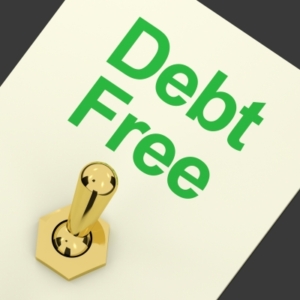 It would be great if there was a switch that would automatically get rid of all debt in our lives?
It would be great if there was a switch that would automatically get rid of all debt in our lives?
Publilius Syrus is credited with saying, “A good reputation is more valuable than money,” but if you want to have a financial piece of mind you have to acknowledge that the two: your reputation and your money go hand-in-hand.
I recently read a statistic that said about 60% of the population live from paycheck-to-paycheck.
Not being financially savvy can disrupt your life.
- Too many bills and debt can cause you to lose sleep and peace in your life.
- Having debt collectors calling daily will frustrate and depress you.
- Your financially problems can become so great that you will feel overwhelmed, you could lose your home, car, or have no money for necessities or wants.
If this is the case, there is always HOPE and the outlook doesn’t have to look so bleak. However, before any changes can take place you must learn to think differently about how you spend your money. Your attitude must change towards how you view money, you have to look at your money as a earned resource for your needs. Take your wants out of the equation if this is your story.
Here are 5 tips to follow if you want to get out of your financial rut.
1. Know your actual income.
Even if you’ve landed your dream job and can boast of a six-figure salary your take home pay is a lot less than your gross so sit down and make sure you have a good view of your net salary. Know what you actually bring into your home after taxes and deductions have been taken out of your check. You may be surprised that your take home pay is a lot less than you originally guesstimated.
2. Evaluate your debt.
You will have trouble paying off your creditors if you are not sure who they are, why they are calling, why you are receiving collection notices, etc. When you have made up in your mind that you are ready to make a change in your financial habits sit down and write down all of the bills you owe as well as your revolving living expenses.
Once you can view this heavy weight on paper you can then start planning how to make them disappear one-by-one. If your debt is so enormous that you want to isolate yourself then get expert help. Contact a financial adviser. If you are a part of a credit union, there are financial advisers available to help you navigate your financial path and start down a road that will work for you.
3. Know your automatic deductions.
It is popular to have bills automatically drafted from your accounts, but if you are not careful these automatic deductions can cause you to overdraft your bank account and lead to heavy penalties and fees later.
Popular automatic deductions are:
- Utilities bills such as water, gas, electric, cable, telephone, etc
- Child support
- Giving to charitable organizations
- Car and Health insurance fees
- IRS fees
- Credit card payments
- Car note
I only named a few deductions, but be aware of what they are and how much they are deducting from your account monthly.
4. Develop a Pay-it-Back strategy
Here’s where your Tetris skills will come in handy. START A BUDGET. A budget is really not optional if you are in a financial rut. You have to have one that you are committed to using. Find a method of budgeting that works for you.
Here are some suggestions:
- Paper budget. Print this form, fill it out and post it somewhere where you can see it so you can be reminded to follow it.
- Electronic budget. For people that are computer literate keep a working budget on your computer, just remember to visit it nightly and fill out the appropriate areas. Dave Ramsey’s site has some FREE budget tools that you can utilize.
- Budget apps. Do you keep your cellphone or tablet with you? If so, try using a budget app, here are some suggestions from imore.com “Top 5 budget and personal finance apps for iPhone“
5. Discipline yourself to follow through
Unfortunately, no one has the luxury of pressing a debt free switch, not even the rich and famous. Even though debt can proceed our reputations it doesn’t have to. Don’t just start a new financial leaf, see it all the way through to financial independence. Learning to manage your money effectively is a learned skill that will result in a lifestyle change. For a while you will not be able to appease your wants with the money you don’t have. Try not to eat out, plan a weekly menu and grocery list (I suggest weekly because it is easier when you’re just starting out, but don’t buy things that are not on your grocery list if you don’t have to). Take a personal finance class. Develop a desire to learn and be taught about your money.
If you want to get out of your rut emotionally you’ll need to:
- Change your attitude
- Think needs
- Exhibit self-control
Reader Response: What is the easiest thing people can do to get their finances in order?
Image Credit: Stuart Miles, freedigitalphotos.net


